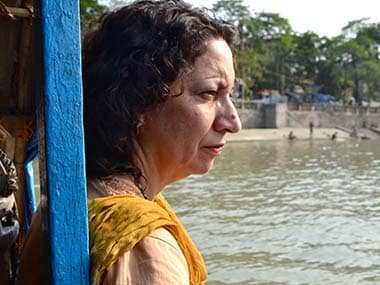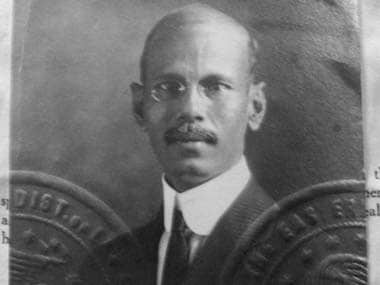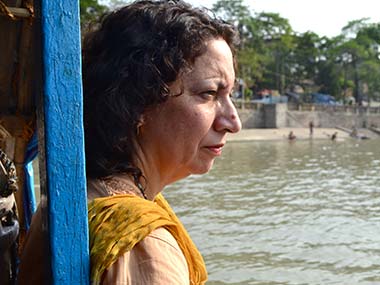In 1896, almost a century before Mira Nair’s Mississippi Masala caused a stir by daring to show a romance between a black man and an Indian woman in the American South, a Muslim Bengali peddler from Hooghly married a black Catholic woman from New Orleans and settled down in that city. There’s no record of how they met or what the neighbours made of them. Shaik Mohammad Musa died in 1919, a few months before his son was born. His widow Tinnie raised their three children as black and Catholic. Their Indian heritage was lost in history. “We had a hookah, and we had a picture, and then we had family stories – that was all we had,” says Fatima Shaik, his granddaughter. And their names. They were the only Shaiks in the phone book. Her classmates teased her, singing Shake, Baby, Shake in the school yard. Sometimes lonely Indians landing up in New Orleans would find them in the phonebook and call them on the off chance they were from the subcontinent. Her father, she says, was always wistful after those conversations. “Perhaps he would think maybe he had family too somewhere in India and some day they would call up.” This year, Fatima Shaik came to India for the first time to try and solve the mystery in her family tree. Jeffrey Reneau, the director of the American Center in Kolkata which hosted her says “her story brings home this international issue of belonging and who am I. When you start deconstructing identity you find pieces and threads of who you are. The only thing bringing all the pieces together is you.” Who is Fatima Shaik? It’s like a detective story but one with “no footprints, no contemporary clues," says Kolkata-born filmmaker and Fulbright-Nehru fellow Kavery Kaul who is filming Fatima’s journey. Even the name of the ancestral village was lost in transliteration. “We had to unscramble the English,” laughs Kaul. An academic reminded her there were many villages in Bengal with similar names. But an old letter from Shaik Musa with the name of the post office helped them finally track it down to Khori village in Hooghly. “What will surprise many people in America and Kolkata, is that there were many villagers whose grandfathers had left about the time Fatima’s grandfather did. Some went to America, some to Panama. Some came back, some didn’t,” says Kaul. [caption id=“attachment_696869” align=“alignleft” width=“380”]  Fatima on the Ganges. Image credit: Usha Kaul/Riverfilms[/caption] Vivek Bald has just written a book about these forgotten migrants – Bengali Harlem and the Lost Histories of South Asian America. Bald writes that at the turn of the 20th century there was a flourishing network of peddlers from places like Hooghly in America. They sold chikan embroidery – shawls, handkerchiefs, bedspreads. Women in their villages hand-embroidered them. Once they used to take them to cities like Calcutta but when the British flooded the market with cheap factory-made goods, they needed to find other markets. Eat Pray Love – circa 1900 America was going through an “Oriental” fascination at that time. The Indian nautch dancer was part of American burlesque. There were tobacco brands with names like Hindoo and Mogul. In New Orleans the Mardi Gras parade had floats with themes like Hindoo Heaven and Light of Asia. These peddlers worked the boardwalks of resort towns like Atlantic City and carnival cities like New Orleans selling a bit of that exotic Oriental fantasy to Americans even as the country’s borders started to close on Asian immigrants. “These men came to the United States on a thin edge between Indophilia and xenophobia,” writes Bald. The 1900 federal census found twelve men from “Hindoostan” living in New Orleans. There were stories in newspapers about men as “wise as Solomon”, with “black skull caps” and “long tailed frock coats.” One newspaper wrote a long account about being transfixed by amazement watching a “Hindoo” wobbling on a bicycle – “humped over like a camel trying to keep his balance”. By 1910, the number of peddlers had increased five fold. Bald estimates between the 1880s and 1920s, approximately 300 to 500 men from Hoogly/Calcutta moved through the peddler network in America — a small number but crucial in establishing the continuity of the South Asian migration story. Fitting between black and white Many of these peddlers returned to their villages. But some, like Fatima’s grandfather, did not. Some even became American citizens throwing courts into a quandary because only whites and persons of African ancestry could become US citizens. “Abba Dolla”, an Afghan silk peddler from Calcutta, for example, applied as a “white person”. The district court judge made him roll up his sleeve and was satisfied that though his face and hands were tanned by the sun, his unexposed skin “was sufficiently transparent for the blue colour of the veins to show very clearly.” [caption id=“attachment_696874” align=“alignleft” width=“380”]  Roston Ally, another member of the Hooghly peddler network who operated in Atlantic City, New Jersey and in New Orleans, Louisiana, around the turn of the twentieth century. Image source: US National Archives[/caption] But even if these men slipped through the cracks of immigration law, the colour codes in society were stricter. That determined where they slept at night and the women they married. Indian immigrants today do not realise they owe a historical debt of gratitude to the black community. At a time when lawmakers viewed them as part of the “Asiatic horde” says Bald, “African American neighborhoods and communities provided them with shelter and the possibility to build lives.” “In New Orleans the African American community was welcoming and I’d like to think Shaik Mohammad fell in love with Fatima’s grandmother, Tinnie,” says Kaul. The men in the middle But this was not just a story of the odd romance of Bengali Muslim men and their Catholic wives and whether it made the gumbo spicier. Men like Shaik Musa were really the men in the middle of a story that was being stitched by women at both ends. Bald writes “(A)s much as the Hoogly peddler network relied upon the work of Indian women in home villages, it functioned in North America because of the labour of US women of color.” These women made New Orleans a home, not just a boarding house. “I don’t know if the men wrote at length about their wives, the race and religion of their wives,” says Kaul. “The men did what they had to do, I am sure the women embroidering chikan missed them. I have no doubt about that.” Unlike the Punjabi farmers of the west coast and their Mexican wives who left behind gurdwaras, the chikan peddlers of New Orleans left few physical traces of their American lives. There are no records of mosques or ethnic enclaves. Within a generation, their children had been absorbed into the black community although Bald says we should remember in New Orleans “‘blackness’ was incredibly expansive and mixed — it had room to incorporate the Bengalis and their descendants.” He says he has heard there is an African American family in New Orleans descended from the Bengali peddlers who still get together every Sunday to make a big pot of biryani. And there were mosquitos Fatima Shaik says before her trip she wanted specific answers about the grandfather she had never known - “What were the similarities to me physically, what did he like to eat?” But as she traveled through Kolkata and up the Hooghly to the village he was from she just started imagining him walking to the main road, taking a cart to the city, and then boarding a ship for the New World. Kaul says as much as her film is about Shaik Musa and his journey from India, it’s also about Fatima Shaik, the African American writer’s journey to Kolkata. “When I got off the plane I was struck that Calcutta was very much like New Orleans,” laughs Fatima. “So hot, so humid at night. And there were mosquitos. In that sense I felt I was home.” Then she says with a smile that she likes to think her grandfather felt the same as well when he got off his ship in New Orleans. “When he encountered the same heat and the same humidity and the same mosquitoes – he must have felt like he was home too.”
In 1896 a Bengali Muslim man married a Black Catholic woman in New Orleans. In 2013 his granddaughter comes to Hooghly, India and finds she’s part of a lost network of turn-of-the-century chikan embroidery peddlers who sold the exotic Orient to fascinated Americans a century ago.
Advertisement
End of Article


)

)
)
)
)
)
)
)
)



